News and features
Read the latest news and features about our world-leading research, discoveries, fundraising and philanthropy. If you want to keep updated on our news, you can follow us on social media or sign up for our Search newsletter.
If you’re a journalist and want to find out more, you can contact our media relations team.
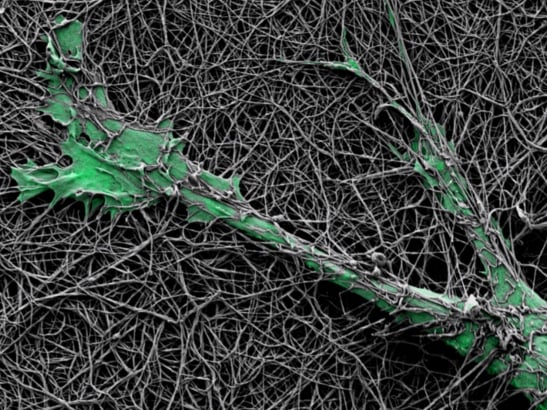
Skin cancer cells harness nerve cell gene to drill through and invade new tissues
Melanoma skin cancer cells harness a gene usually used by growing nerves to escape from their immediate area and spread through tissues, new research has found.
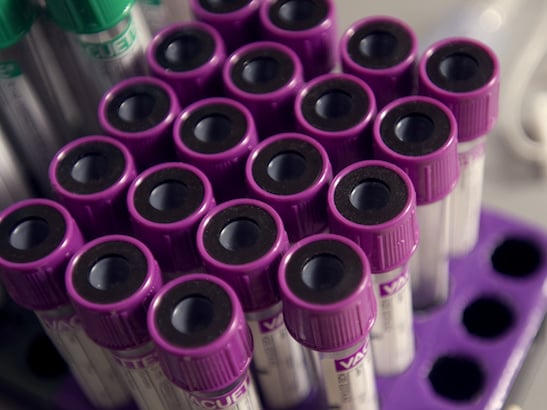
All patients’ cancers should be genetically profiled to improve care, say leading health experts
The NHS should offer all cancer patients genetic profiling of their cancers at diagnosis and during treatment to shape care and track how the disease evolves, a consensus group of leading experts has concluded.
-547x410.jpg?sfvrsn=5e98f2c_2)
Olaparib for high-risk, early-stage breast cancer approved in Europe
The Institute of Cancer Research, London, strongly welcomes the news that the precision medicine olaparib has been approved in Europe for people with high-risk, early-stage breast cancer who have inherited faults in their BRCA1 or BRCA2 genes.
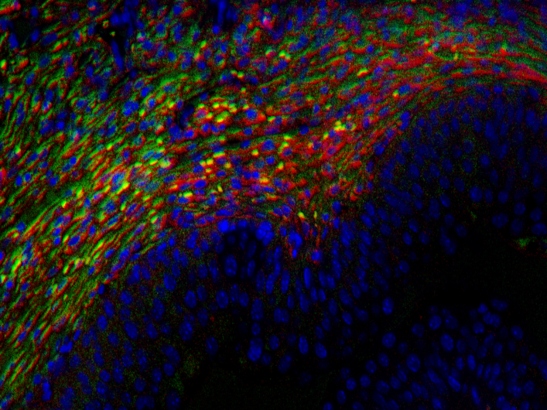
Long-term benefit of combining chemotherapy and radiotherapy in bladder cancer
Giving people with bladder cancer chemotherapy and radiotherapy at the same time helps stop cancer from coming back, long-term results of a 10-year study confirm.

New study reveals how ’free radicals’ drive cell division, uncovering a potential new way to target cancer
Scientists have discovered how naturally occurring but unstable molecules, known as free radicals, can control the fundamental process of cell division, which, when it goes wrong, can lead to uncontrolled cell growth and cancer.

ICR’s in-person business partnering events return!
Our Partnering to Defeat Cancer series of business networking events returned this month, with scientists from The Institute of Cancer Research giving presentations on their work to an audience of industry professionals before a networking reception.

First MedTech company moves in at The London Cancer Hub’s Innovation Gateway
Precision medicine start-up enterprise Vesynta has become the first MedTech company to move into a sophisticated laboratory at south London’s newest incubator space, the Innovation Gateway at The London Cancer Hub in Sutton.
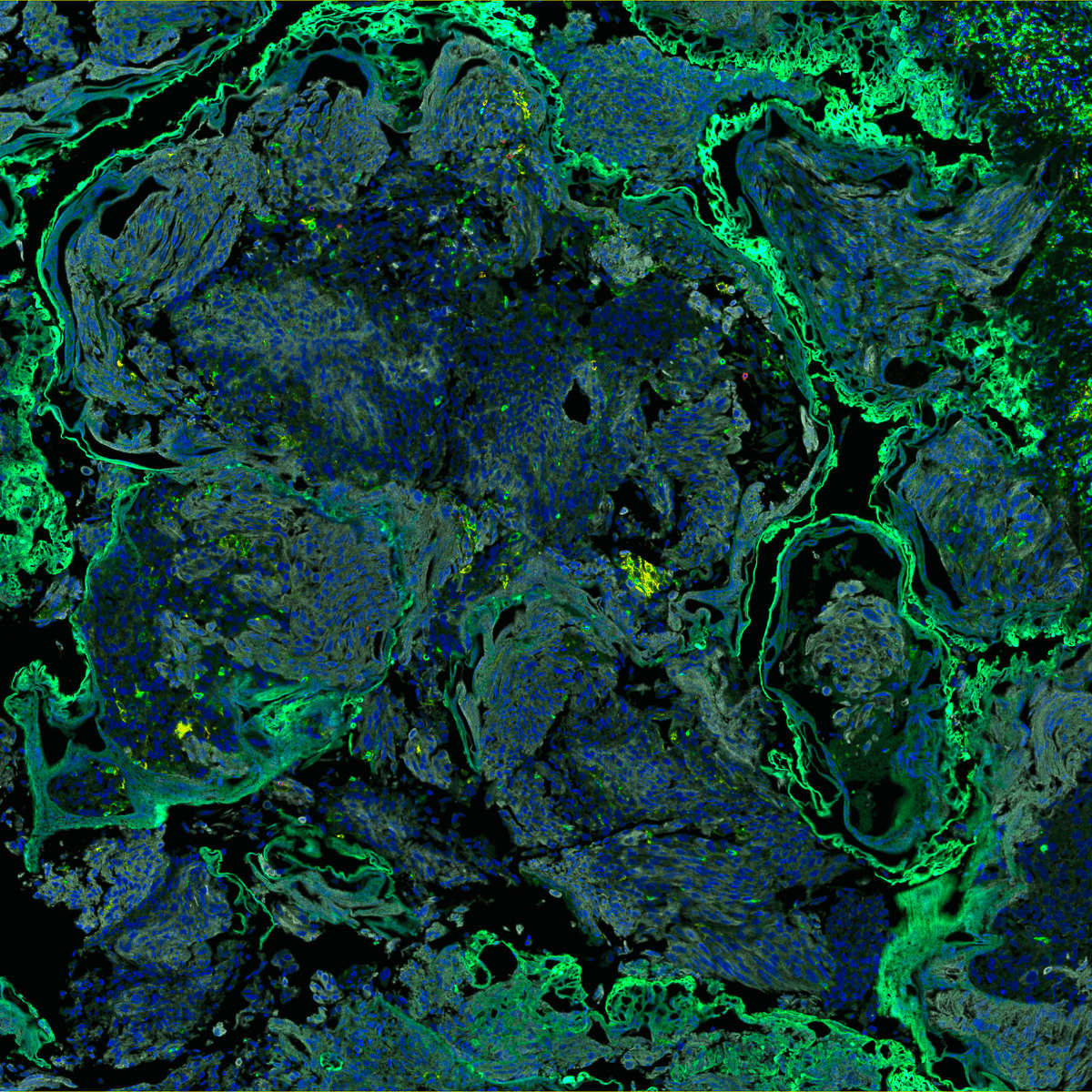
PhD student Rose Foster wins ICR Science and Medical Imaging Competition
PhD student Rose Foster in the Prostate and Bladder Cancer Team in the Division of Radiotherapy and Imaging has won the ICR Science and Medical Imaging Competition 2022 for her image of a fluorescent image of bladder tumour tissue.

‘Junk’ DNA could lead to cancer by stopping copying of DNA
Scientists have found that non-coding ‘junk’ DNA, far from being harmless and inert, could potentially contribute to the development of cancer.

Pioneering ICR scientist wins prestigious translational cancer research award
Dr George Poulogiannis, leader of the Signalling and Cancer Metabolism Team at The Institute of Cancer Research, London, has received the 2022 British Association of Cancer Research–AstraZeneca Young Scientist Frank Rose Award for his research into the role of metabolism and nutrition in cancer development and therapy response.
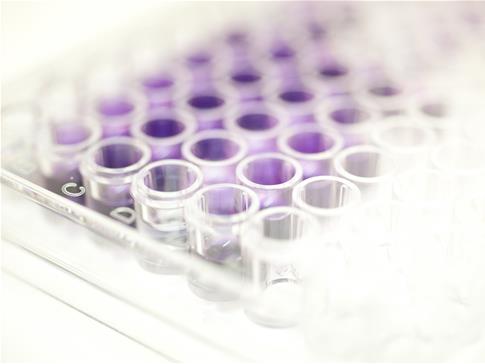
Researchers call for improved use of chemical tools to enhance biomedical research
Experts in biomedical research are calling for better use of chemical probes to improve our understanding of protein function and the foundations on which much of modern drug discovery and development are based.
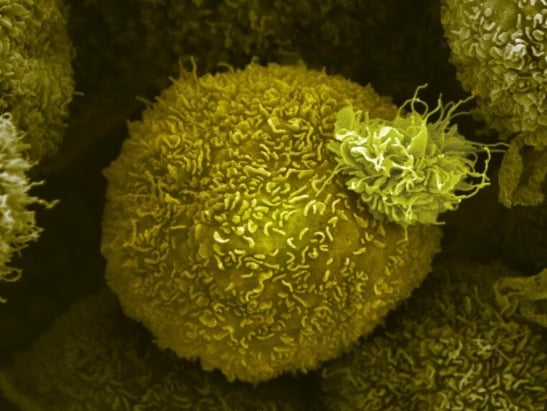
Scientists discover mechanism controlling spread of pancreatic cancer
Scientists have shown it is possible to reverse a key process that allows pancreatic cancer cells to grow and spread around the body.
